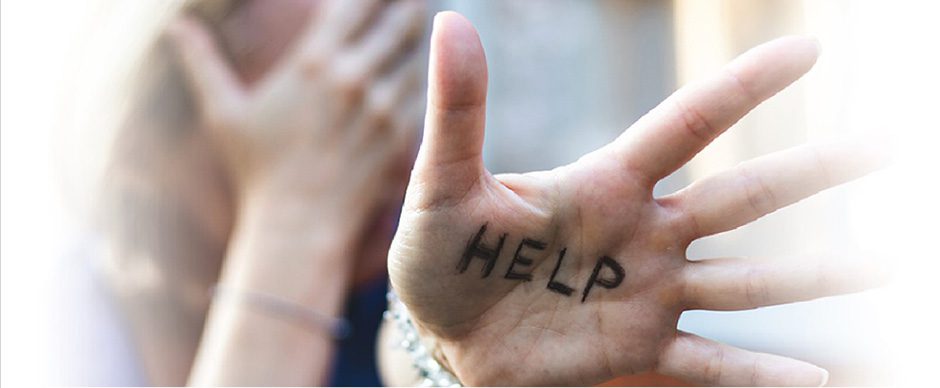
[This piece was written by Lindsey Crusan, director of the Sexual Assault and Crime Victims Assistance Program at Samaritan Hospital.]
According to the Centers for Disease Control and Prevention, 1 in 10 teens reported being hit or physically hurt on purpose by a boyfriend or girlfriend at least once over a 12 month period. Additionally, 1 in 10 teens reported they had been kissed, touched, or physically forced to have sexual intercourse when they did not want to at least once by someone they were dating over the same period. And the number of teens reporting being a victim of emotional or verbal abuse from a dating partner is even larger, at one in three adolescents.
Dating violence can happen anywhere to any teen in a romantic, dating, or sexual relationship. Next month is National Teen Dating Violence Awareness and Prevention Month, which makes now an excellent opportunity to discuss the issue with the teens in your life.
Unhealthy or abusive relationships can have severe consequences and short- and long-term negative effects on a developing teen. The CDC notes youth who experience dating violence are more likely to experience:
- Symptoms of depression and anxiety
- Engagement in unhealthy behaviors, such as tobacco, alcohol and drug use
- Involvement in antisocial behaviors
- Thoughts about suicide
Additionally, youth who are victims of dating violence in high school are at higher risk for other types of victimization during college and early adulthood.
The key is for adults to start the discussion with teens before they start dating, to establish the importance of developing healthy, respectful relationships. Teens need to know dating violence is not just physical – persistent teasing, name calling, and stalking in person or electronically are all unhealthy, dangerous behaviors.
Modeling positive, supportive relationships is critical. Seeing their peers and loved ones in healthy relationships helps teens to understand what they should expect from their own relationships, both romantic and otherwise.
The Sexual Assault and Crime Victims Assistance Program (SACVAP) at Samaritan Hospital offers a variety of educational presentations tailored to schools, colleges, sports teams, parent groups, senior groups, allied health professionals, and law enforcement agencies. Video, lecture, activity and discussion are combined into age-appropriate presentations and information is presented in a flexible, non-threatening and empowering manner.
The Safe Dates presentation is designed for both male and female middle- and high-school students and can be presented alongside existing health education, family life skills or general life skills curriculum. This program consists of nine 50-minute sessions and helps teens recognize the difference between caring, supportive relationships and controlling, manipulative or abusive dating relationships.
SACVAP also offers – at no cost – short-term counseling, support groups, therapy, accompaniment, advocacy, legal advocacy/counseling, and specialized programs for crime victims, including victims of dating violence.
For more information on any of SACVAP’s services, call (518) 271-3445.
Additional resources:
One Love Foundation: http://www.joinonelove.org/
Love is Respect: http://www.loveisrespect.org/resources/teendvmonth/





